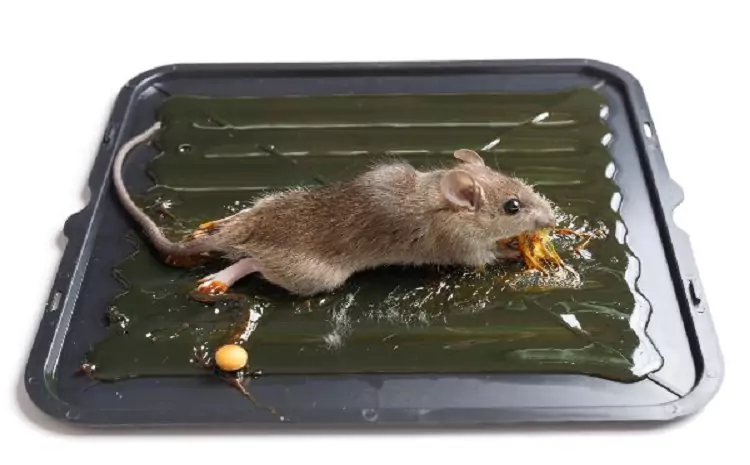The rise of rats is no more a scare for the future. Currently, 30% of Americans have reported experiencing a rodent problem.
Therefore, deterring rats is crucial for property protection, health, and a safe living environment.
Moreover, rats can cause significant damage to structures and spread diseases. Thus, proactive measures are essential.
You must ensure a deep clean, from safely cleaning rat urine and droppings to dead rodents and nesting materials.
These requirements necessitate consulting a healthcare provider if you become sick due to a rodent-borne disease.
Nevertheless, professional rodent pest control has the right training in effective and safe methods for removing rodents and preventing their return.
Professional intervention can also prevent certain mice and rats from transmitting the virus that causes Hantavirus Pulmonary Syndrome (HPS). However, all rodents can transmit other bacteria and viruses, including Salmonella bacteria.
So, let us explore how to keep your home clean and safe from these notorious rodents.
Steps To Protect Your Home From Rodents
Proactive measures are crucial to prevent rodents from entering your home. However, if a problem is suspected, calling a licensed building inspector is important, as rodents can still enter.
1. Sealing The Cracks
Mice, rats, and rodents can easily enter homes through small gaps. Therefore, sealing these cracks and openings is one of the most important first steps to avoid rodent infestation.
This includes gaps around the following areas:
- Doors.
- Windows.
- Floors.
- Walls.
- Ceilings.
- Foundations.
- Phone lines.
- Rooflines.
- Chimneys.
- Pipes.
- Vents.
- Cables.
Sealing these areas with caulk, weather-stripping, or other sealants is recommended. Mice are crafty and determined and can squeeze through small spaces, even those the size of a pen.
Therefore, it is essential to analyze your home and seal any cracks or openings thoroughly, even if they seem insignificant. This will help keep rodents out and reduce energy costs once the furnace is turned on.
2. Do Not Leave Any Food Sources
Places where rodents can feed and be provided for attract them the most. As discussed above, sealing up cracks and openings is important to restrict access to these needs.
Nevertheless, another crucial step is to eliminate potential food and water sources that attract these animals to enter through cracks. Therefore, keep food in tightly sealed containers made of glass or metal.
Bring pet food bowls inside at night to prevent rodents from associating your home with easy meals. You can also use tightly sealed storage containers to dampen the scent of your kitchen, which also helps prevent rodents from entering your food.
Moreover, keep your pet’s food in plastic containers, dispose of uneaten food and packaging properly, and regularly dispose of garbage.
3. Ensure Regular Cleanup
To prevent rodents from entering your home, keep it clean and clutter-free. Mice and rats prefer shaded, damp areas, so reducing clutter makes them less likely to stay.
Therefore, regular vacuuming and cleaning up spills and crumbs can attract rodents. Moreover, you must sanitize surfaces with peppermint-scented cleaning agents or peppermint oil to keep rodents away.
Also, ensure you keep closed spaces like basement or closets free of clutter. These areas will likely be where rodents will likely live.
Thus, remove any small items that may attract mice, such as crumbs, spills, and dirt, as they attract pests. Regular vacuuming every few weeks can also help reduce the problem and make your home more welcoming for rodents.
4. Close Your Bins
It is crucial to keep your bins closed and stored away from your home to prevent rodents from entering.
However, if you have a compost bin, ensure it’s sealed to limit access to potential food sources.
Rodents are attracted to compost bins. Therefore, it’s best to store them in a shaded corner of your property within a comfortable walking distance from your house.
5. Consider Professional-Level Cleaning
Handle contaminated items with protective clothing and a HEPA-equipped respirator. If the infestation is extensive or recurring, consulting a rat exterminator can ensure the problem is eliminated safely and thoroughly. Professionals tend to have access to specialized tools and treatments that reduce health risks and prevent future infestations more effectively than DIY methods.
Remove mouse droppings, nest materials, and urine using gloves, long pants, a hat, eye protection, and a N95 face mask. Wash clothing separately and hand it with soap, water, or alcohol.
To clean mouse droppings, thoroughly clean surfaces infested by mice and disinfect them with a commercial disinfectant or bleach mixture.
Handle debris with gloves, paper towels, or cleaning rags and place them in trash bags. Vacuum up droppings or nesting material to prevent the spreading of disease-laden particles.

Mark Thompson, a seasoned pest controller, is renowned for his expertise in keeping homes and businesses free from unwanted intruders. With a passion for environmental sustainability and a deep understanding of pest behavior, Mark has become a trusted authority in the industry.
